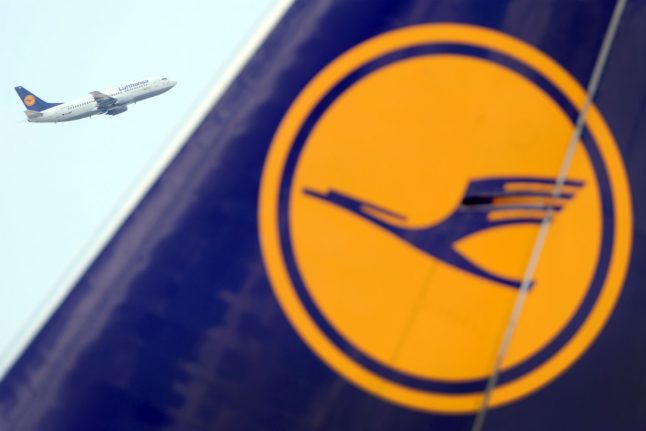“25 long-haul aircraft and 125 short- and medium-haul aircraft” will no longer fly, a spokesman for the group also including carriers Eurowings, Austrian and Swiss told AFP.
Shares in Lufthansa have plunged in recent days as the likely impact of the COVID-19 disease on the aviation sector in particular has become clearer.
The stock was up slightly in afternoon trading in Frankfurt, adding 0.6 percent to trade at €11.98 just after 3:30 pm but slightly underperforming the DAX blue-chip index.
READ ALSO: Lufthansa to cancel a quarter of flights due to coronavirus
It remains around 27 percent lower than at the start of the year.
On Monday, Lufthansa said it would slash its flight plan by 25 percent, especially on short- and medium-haul routes including to virus-hit areas of Italy but also within Germany.
The group has suspended routes to other virus hotspots, including China and Iran, to late April.
Lufthansa has also suspended new hires as part of its measures to cushion the business impact of the virus, which it said Monday was “not yet possible to estimate”.
The International Civil Aviation Organization has said that the virus outbreak could mean a $4-5 billion drop in worldwide airline revenue.
READ ALSO: German airline Lufthansa further slashes flight plan over coronavirus



 Please whitelist us to continue reading.
Please whitelist us to continue reading.
Member comments